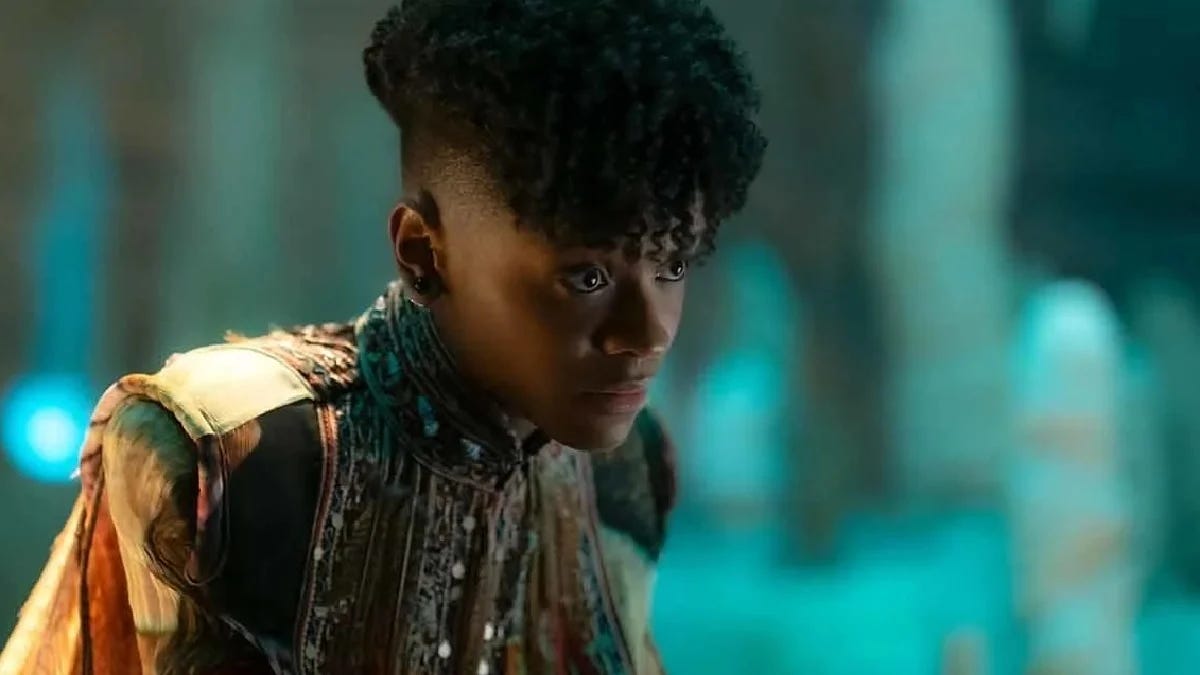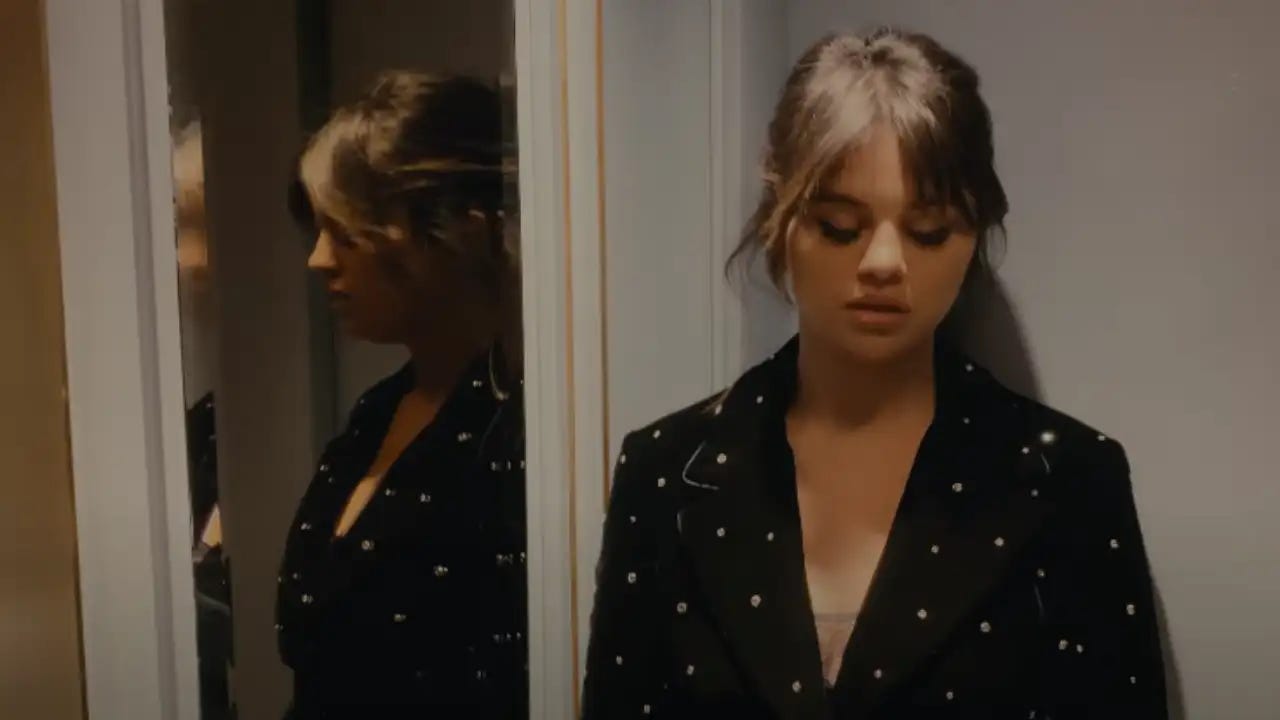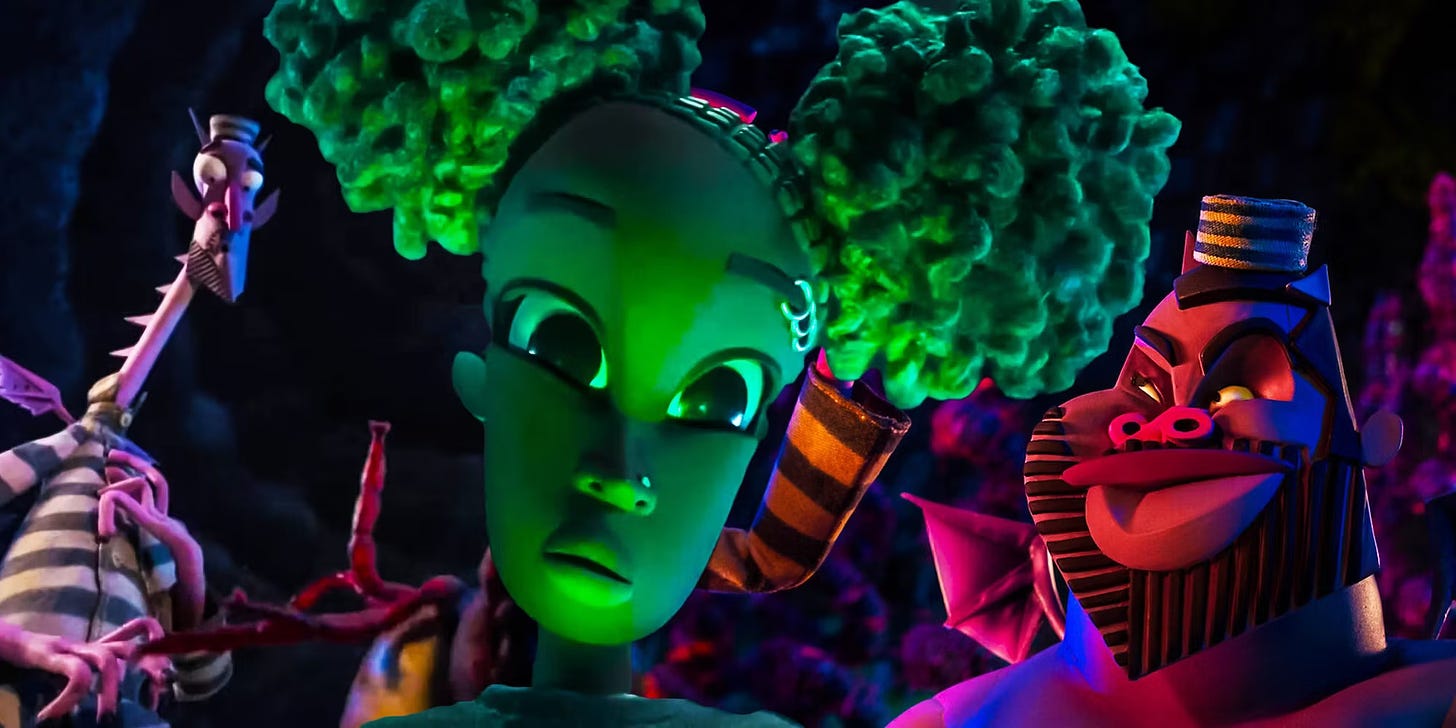In Review: 'Black Panther: Wakanda Forever,' 'Selena Gomez: My Mind & Me,' 'Wendell & Wild'
Interested in movies recommended with strong reservations? We have three of them this week, of various shapes and sizes.
Black Panther: Wakanda Forever
Dir. Ryan Coogler
161 min.
That Black Panther: Wakanda Forever exists at all is kind of remarkable. Conceived as a sequel to the 2018 film Black Panther and set to star, naturally, Chadwick Boseman in the role of T’Challa, superhero and protector of the African kingdom of Wakanda, the film was derailed in its original form by Boseman’s shocking 2020 death from colon cancer. Any subsequent Black Panther films would have to address his absence and consider its implications for the world of the first film, a gleaming Afrofuturist vision in which cutting edge technology and tradition lived side-by-side.
That’s not the usual starting point for the latest rip-roaring entry in the Marvel Cinematic Universe, and in its powerful opening scenes, in which Wakanda mourns its lost leader by pouring into a street watched over by a mural of Boseman’s image, it feels like director Ryan Coogler (who co-wrote the film with Joe Robert Cole) has found a way to weave that sense of loss into the latest Marvel blockbuster. That feeling never really disappears from the rest of the film, but it often has to fight to be heard above the din. Wakanda Forever is an overextended, narratively clunky MCU entry, one laden with subplots, digressions, and characters squeezed into its expansive running time to serve the needs of the overarching MCU film-and-TV project rather than the needs of the story. (Dominique Thorn, for instance, is winning as Riri Williams, a teen tech genius from America, but it’s obvious that she’s there because her character has a Disney+ series in the works.)
All that aside (and in the film’s long middle section, it’s admittedly a lot to put aside), there’s a lot to recommend Wakanda Forever, which shifts the focus toward the women T’Challa left behind as they work to maintain Wakanda’s power and independence while other nations put their designs on the country’s powerful store of the precious metal vibranium. Now controlled by T’Challa’s mother Ramonda (Angela Bassett), Wakanda faces an unexpected threat when an American ship in search of an undersea vibranium deposit is attacked by mysterious forces emerging from the ocean’s depths. (Scarily staged with nods to Aliens and The Abyss, the attack is one of the film’s best scenes.) Suspicions fall on Wakanda, but Ramonda and her daughter Shuri (Letitia Wright) learn the truth after a tense encounter with Namor (Tenoch Huerta), the leader of an underseas race descended from Mesoamerica people who took to the ocean as the European colonizers arrived. Namor wants to use the moment to take on the rest of the world. The Wakandans do not. A struggle ensues.
The film throws several compelling elements into the jumble. Namor is tough to call a villain and his undersea land of Talokan is depicted as Wakanda with the intensity turned up: it’s even more isolated and less likely to hesitate in using extreme measures to eliminate the threat of would-be colonizers. The film’s best moments point toward a philosophical conflict to match the clash of forces. And if it lacks a central figure as charismatic as Boseman, it still features strong performances from Wright, Bassett, Huerta, and a supporting cast that includes Lupita Nyong’o, Danai Gurira, Winston Duke, and Florence Kasumba.
It’s a shame that almost none of them get breathing room for their characters, but that’s a problem endemic to the current state of an MCU, in which the blueprint always remains visible beneath the architecture. Black Panther has rightly emerged as the consensus choice for the MCU’s best film and that’s in part because, like Wakanda, it existed largely in isolation from the larger world, allowing Coogler to explore themes specific to its vision of a thriving African nation with an abundance of resources and the ability to keep everyone else at arm’s length. That’s present here — Wakanda remains both a design wonder and a beguiling vision — but in muted form. It’s laudable that Coogler and company put together a perfectly fine MCU film under the circumstances but, unlike its predecessor, it’s only fleetingly more than that. —Keith Phipps
Black Panther: Wakanda Forever opens widely today.
Selena Gomez: My Mind & Me
Dir. Alek Keshishian
95 min.
Selena Gomez was a 10-year-old from Grand Prairie, Texas when she caught her big break, appearing as “Gianna” on 13 episodes of Barney & Friends over a two-year stretch. From there, her career took a common breakout Disney Kid trajectory: A lead role on the hit show Wizards of Waverly Place, a record deal at age 16, and the inevitable de-Disneyfication as a young adult, which in her case included a role in Harmony Korine’s Spring Breakers and albums that gained in maturity and sophistication without leaving her core audience behind. She has also been trailed by the tabloids, which have feasted on stories of addiction and rehab, her on-again/off-again relationship with Justin Bieber, and her hospitalizations for lupus and depression.
By the evidence in the revealing documentary Selena Gomez: My Mind & Me, she mostly hates her job. She’s burnt out. She’s isolated by fame. She’s under constant stress. The dog-and-pony show of meet-and-greets and promo appearances saps her spirit. She’s living out a childhood dream in every respect, but talks frequently about it like a curse, as if God has obligated to share her gifts with the world, even if it makes her miserable. The struggle that she undergoes in plain sight is to make the life of a pop star more workable, to talk about herself more as a “work in progress” than a finished product. But for as hard as My Mind & Me tries to smooth out the rough edges in the end, it nonetheless leaves the impression of a woman condemned.
Director Alek Keshishian knows this terrain well, having made the half-candid/half-teasing documentary Madonna: Truth or Dare over 30 years ago. The commercial sheen of the Madonna film carries over to My Mind & Me, too, though Gomez’s eagerness to share her struggles with mental health make it seem less like brand extension than, say, the Taylor Swift doc Miss Americana. There’s no mistaking her angst in an early scene from 2016, when Gomez is doing a run-through of her Revival tour at L.A. Sports Arena and falls apart backstage. She doesn’t like the way she sounds. She doesn’t like her costumes, which make her feel like a 12-year-old boy rather than a young woman. And she’s worried that the record executive overseeing her will find her a disappointment.
None of those concerns are justified—she looks and sounds great, and the label is happy—but she abruptly cancels the tour after 55 performances due to a mental breakdown and a related flareup of her lupus. In 2019, she finally gets a diagnosis of bipolar disorder and starts making mental health a priority, at least as much as she can. The not-so-hidden tension in My Mind & Me is between what makes Gomez happy and what the star-making machinery demands from her, and she can never quite dislodge herself from the latter. It’s only fitting that her biggest hit, “Lose You to Love Me,” is an act of self-effacement. She says she wrote it in 45 minutes.
It’s hard to get around the slickness of the packaging here, which was less of a problem with Truth or Dare, given Madonna’s playful role as co-conspirator to Keshishian as much as subject. When Gomez leads the camera through tours of her childhood haunts in Grand Prairie or the schools her philanthropic funds helped build in Kenya, the narrative engineering feels too aggressive, however obvious it is that she’s happier in these spaces than in her professional ones. The true value of My Mind & Me are in those unvarnished moments when she cannot hide how she feels, and the trappings of fame start to seem like just that—a trap. The dark implication is that she can never quite get out, but maybe perhaps you can. — Scott Tobias
Selena Gomez: My Mind & Me is currently streaming on Apple TV+.
In Brief:
Henry Selick makes movies so rarely that each one feels like an event simply because of scarcity. Wendell & Wild is the first film from the stop-motion animation great behind The Nightmare Before Christmas and James and the Giant Peach since Coraline in 2009. (And, apart from the mostly live-action side trip Monkeybone, that’s the entirety of Selick’s filmography as a director.) Co-written by Selick and Jordan Peele, the director’s latest is filled with ambitious themes, clever ideas, and, of course, remarkable animation, but it’s made wobbly by the attempt to shove in everything its creators wanted it to contain. It’s so overstuffed it struggles to move.
Still, there’s a lot to like here, particularly the relationship between the young heroine Kat (Lyric Ross) and her parents (Gary Gatewood and Gabrielle Dennis), whom she loses in a freak car accident as a child then regains (in a slightly corpse-y form) years later as a rebellious teen. That resurrection comes courtesy of the dimwitted demons Wendell and Wild (voiced, respectively, by Keegan-Michael Key and Peele, Key’s longtime comedy partner). In dealing with them, Kat learns there’s more evil above the surface than in the Earth’s hellish depths, thanks to some crooked real-estate developers with an interest in the prison-industrial complex. There’s not a dull element here, including a soundtrack loaded with rock music by Black musicians from X-Ray Spex to TV on the Radio. It’s a shame Selick and company struggle to find more ways to, well, animate it. — Keith Phipps
Wendell & Wild is now streaming on Netflix.











It had been so long since I'd heard "Cult of Personality" that when it kicked in at the climax of W&W it was a complete moment of joy. Agree that it has more stuffing than engine, but enjoyed it.
"Wakanda Forever is an overextended, narratively clunky MCU entry, one laden with subplots, digressions, and characters squeezed into its expansive running time to serve the needs of the overarching MCU film-and-TV project rather than the needs of the story. "
I'm really hoping to watch some of these as fan edits that remove the chaff and let us just enjoy the core story.